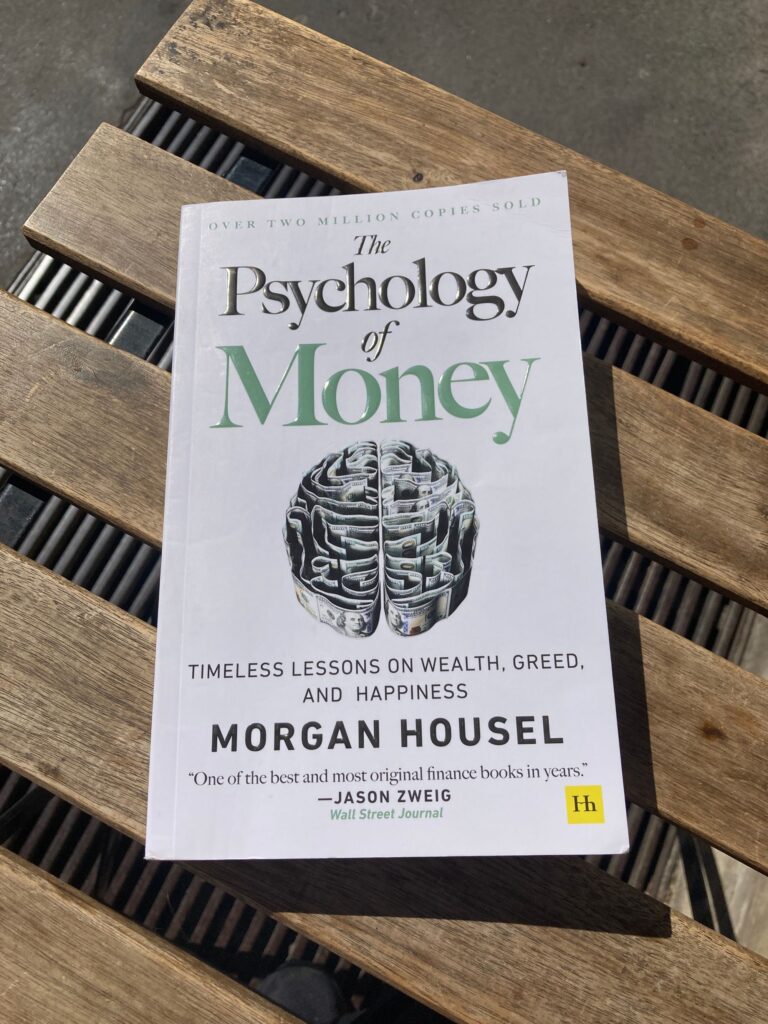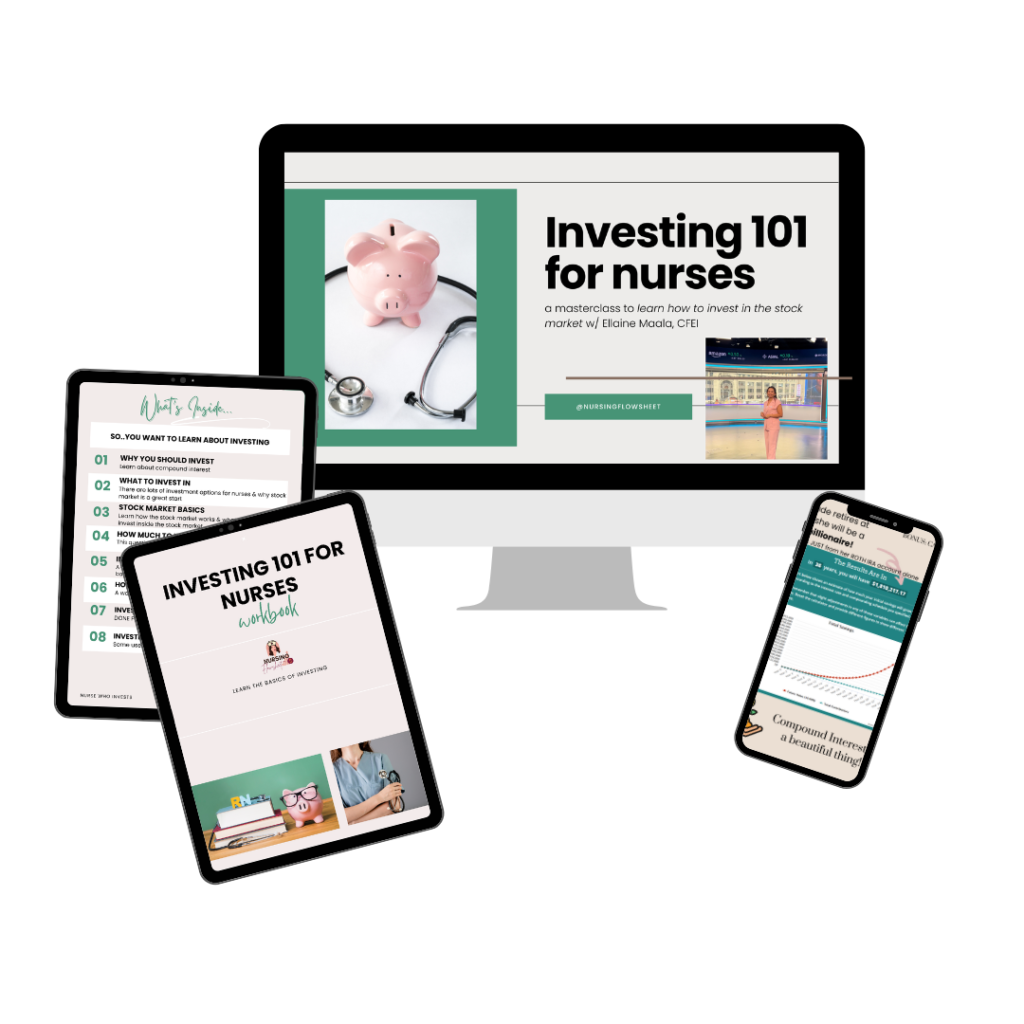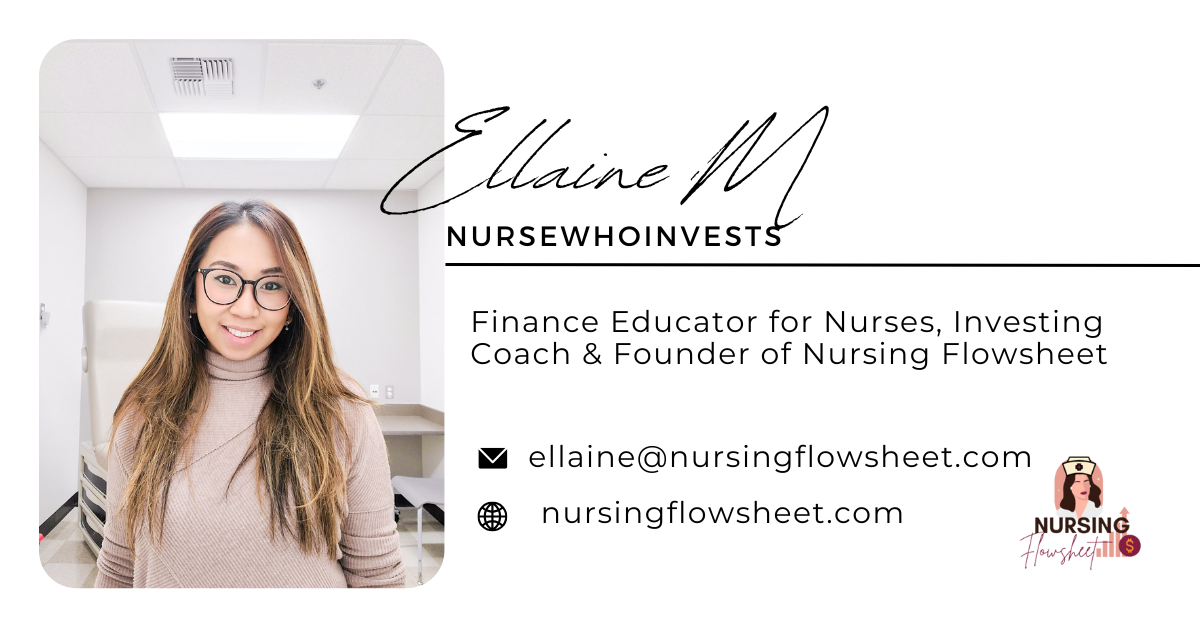One of my favorite finance books is Psychology of Money by Morgan Housel. Unlike many financial books that focus on numbers and strategies, Housel’s work delves into the psychological aspects of money management, offering timeless wisdom that I think is sometimes more important.

I want to share with you the 4 Wealth Lessons from this book. I picked up a different book earlier this week called Your Money or Your Life by Vicki Brown, and it has similar theme, and I just had to pick up Housel’s book again because “it’s that good”.
Nurses, who often face unique financial challenges due to demanding work schedules, student debt, and the need for ongoing education, can greatly benefit from the principles outlined in this book. This blog post will explore the biggest takeaways from The Psychology of Money and how they can be applied to help nurses achieve financial freedom.
1. The Importance of Financial Independence Over Wealth
One of the core messages in The Psychology of Money is the distinction between being wealthy and being financially independent. Wealth, as Housel describes, is often the visible display of money (fancy cars, big houses), while financial independence is the ability to live life on your terms, free from the constant worry of money. For nurses, this means focusing less on acquiring material possessions and more on building a financial cushion that allows for flexibility in career choices, the ability to take time off, or even retire early if desired.
Application for Nurses: To achieve financial independence, nurses should prioritize saving and investing over spending on luxury items. Setting up automatic savings plans, contributing regularly to retirement accounts, and investing in low-cost index funds can help build the financial security needed to navigate the uncertainties of the profession.
2. Understanding the Role of Luck and Risk
Housel emphasizes that luck and risk are two sides of the same coin in the world of finance. He explains that success in money management is often a mix of good decisions and fortunate circumstances. Conversely, even the best plans can be derailed by unforeseen risks. Nurses, who work in a high-stress environment where risk management is part of the job, can apply this concept to their financial lives.
Application for Nurses: Acknowledging the role of luck and risk in financial outcomes can help nurses stay humble and avoid overconfidence in their investment decisions. Diversifying investments, maintaining an emergency fund, and being prepared for unexpected expenses (like medical emergencies or job loss) are practical steps to mitigate financial risk.
3. The Power of Compounding
One of the most powerful concepts in Housel’s book is the power of compounding. Compounding, or earning interest on interest, can turn small, consistent investments into substantial wealth over time. This principle is especially relevant for nurses, who may start their careers with significant student debt and modest salaries.
Application for Nurses: Starting to invest early, even with small amounts, can lead to significant growth over time. Nurses should take advantage of employer-sponsored retirement plans, especially if there is a matching contribution, and consider opening a Roth IRA or other tax-advantaged accounts. The key is consistency; regular contributions, no matter how small, can grow exponentially through the power of compounding.
Learning how to invest is one of the ways for you to get started. I am also hosting a masterclass that will teach you and implement all the knowledge you learn in one day.

4. The Value of Being Reasonable Over Being Rational
Housel argues that in personal finance, being reasonable is often more effective than being perfectly rational. People are emotional beings, and their financial decisions are influenced by their values, experiences, and upbringing. For nurses, who work in a profession driven by compassion and empathy, this idea resonates strongly.
Application for Nurses: Nurses should align their financial goals with their personal values rather than trying to adhere strictly to what might be considered “rational” financial advice. For example, a nurse might choose to work fewer hours or take a lower-paying job in a more fulfilling specialty, even if it means slower financial growth. This approach can lead to greater overall satisfaction and prevent burnout, which is crucial for long-term financial and emotional well-being.
5. The Importance of Avoiding Lifestyle Creep
Lifestyle creep occurs when a person’s standard of living improves as their income increases, leading to higher spending and little or no improvement in savings. Housel highlights this as a common pitfall that prevents people from achieving financial freedom. Nurses, who often experience income growth as they gain experience or take on additional shifts, are particularly susceptible to lifestyle creep.
Application for Nurses: To avoid lifestyle creep, nurses should resist the urge to upgrade their lifestyle with every pay increase. Instead, they should focus on maintaining a modest standard of living while directing any additional income towards savings, investments, or paying off debt. This disciplined approach will accelerate their journey towards financial freedom.
6. Embracing Frugality and Contentment
Housel points out that one of the most effective ways to build wealth is through frugality—spending less than you earn and being content with what you have. This doesn’t mean living a life of deprivation, but rather finding satisfaction in simplicity and avoiding the trap of constant comparison with others.
Application for Nurses: Nurses can practice frugality by being mindful of their spending and making conscious choices about where their money goes. This might involve cooking at home instead of dining out, buying second-hand items, or finding affordable ways to relax and unwind after a long shift. By embracing frugality, nurses can increase their savings rate and reduce financial stress.
7. The Long Game: Patience and Discipline
The final takeaway from The Psychology of Money is the importance of playing the long game. Achieving financial freedom is not about quick wins or making risky bets; it’s about patience, discipline, and making consistent, small steps towards your goals over time. Nurses, who are accustomed to the demands of a long and rigorous career path, can apply this mindset to their financial journey.
Application for Nurses: Nurses should focus on long-term financial goals, such as retirement or paying off a mortgage, and avoid the temptation to chase short-term gains. This means sticking to a budget, regularly reviewing financial goals, and staying committed to an investment strategy even during market downturns. Over time, this disciplined approach will yield significant rewards.
Conclusion
The Psychology of Money offers valuable lessons that can be applied to anyone’s financial journey, but they are particularly relevant for nurses seeking financial freedom. By prioritizing financial independence, understanding the role of luck and risk, harnessing the power of compounding, being reasonable in decision-making, avoiding lifestyle creep, embracing frugality, and playing the long game, nurses can build a secure financial future. The principles outlined in Housel’s book are not just about making more money but about creating a life of financial security, freedom, and fulfillment. For nurses, who dedicate their lives to caring for others, achieving financial freedom is a vital step in ensuring that they can continue to do so without sacrificing their own well-being.








